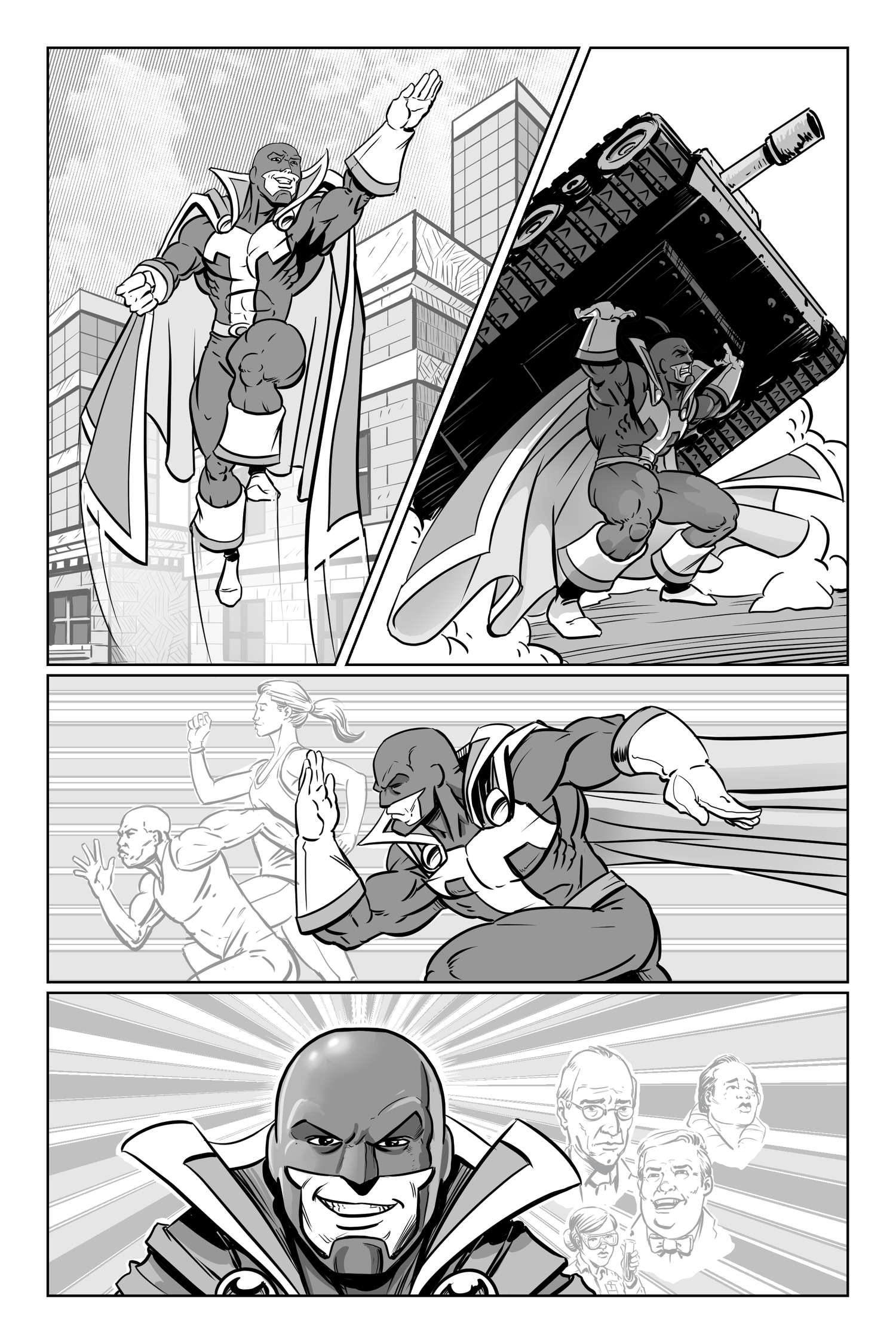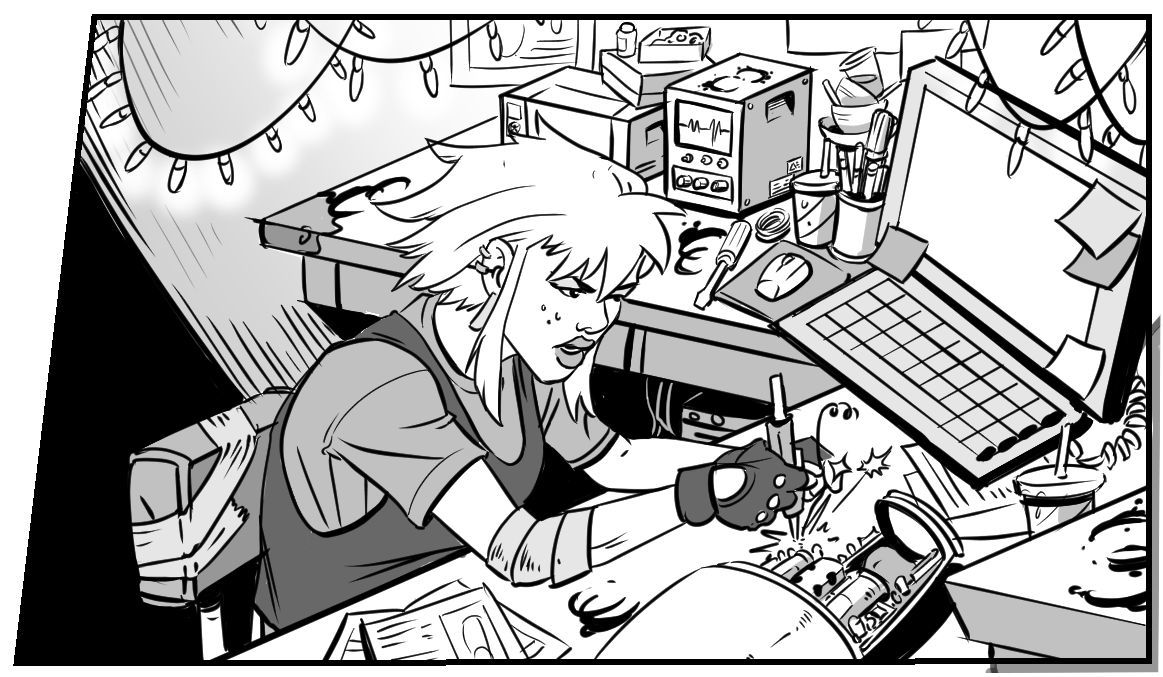We all wish we were a little bit stronger. A little bit better. We all want to be more than what we are.
It’s just so hard. Sometimes it’s just impossible to do the things we want to do and to be the person we want to be.
We can study all we want about the people that just seem superhuman. They were geniuses. They were miracle workers. The things they were able to accomplish in life certainly deserves our attention. These are people like Gandhi, Henry Ford, Joan of Arc, George Washington, the Beatles, Steve Jobs, Bill Gates and more.
All are immortalized in their contributions to society. We are even living among some modern-day giants making large contributions and changing lives. Sometimes they are well known. Sometimes they may be less known. But each seems to have this natural ability or talent.
We wish we could be like them. We also have this tendency to think it’s impossible, but is it?
How did these people harness such superhuman ability? How do these people become so good, so wise, so smart?
It’s no wonder that we run to see movies involving superheroes. They are powerful, intelligent and good. All things that we want to be. All things out of our reach. Or are they?
I recently watched the Marvel movie, Dr. Strange. It inspired me because here is an intelligent man, one who put in years of study to become a neurosurgeon. While he had some advantages like a photographic memory, he is really just an average human, especially once he can no longer practice his career. He suddenly has a disability.
We all have some kind of disability, too. Something that keeps us from doing what we want to do, being who we want to be and accomplishing great things in our lives. It is different for every person.
Yet the plot of the story wasn’t able to really progress until he stopped focusing on his shaking hands. They still may have been the motivation for his study and practice, however, it was no longer his focus. He used the loss of his hands.
It became, rather than a disability, a driving force for what he was doing until the end- *spoiler alert*- when there were bigger things to focus on and to motivate him, like, you know, saving the world, and no longer focusing so much on himself.
So how exactly did Dr. Strange become a superhero? How do super humans become strong, intelligent, wise and powerful?

Desperation
As I mentioned before, we all have some kind of disability or pain. This includes any superhero, historical figure, or modern day marvel. The first thing people naturally do with disabilities is to look for help. We seek out the professionals, the best in the field, to fight and overcome it.
Some are able to get things fixed and become normal. Good for them, in a way. Normal isn’t exactly superhuman… However, to end struggle and pain can be a good and needed thing, and I’m happy for them.
But what happens when there is no cure? What if there is no way to fix it?
We get desperate. We seek avenues we don’t normally consider. Anything to make the pain stop. Just how Dr. Strange sought out mystics and a power beyond western intelligence, the only thing he had really trusted at this point.
How many of us have turned to things we never thought we would in a desperate situation? Whether it be mystical powers, religion, western medicine, drugs, alcohol, social media, Netflix… anything that can be taken to an extreme, anything that will numb the pain or make it seem like it will go away?
The emptiness still isn’t what we are looking for, though. We want full and happy lives. Sadly, this is where most people get stuck. From this point, we really don’t know what to do with ourselves.
We feel broken beyond repair. There is no way to fix us. This is permanent. This is a common mentality I see in people, but I disagree.
See, I have something called Tourette Syndrome. There is no cure. It is often seen as a disability. It is more severe for some than it is for others, and while I admit I have a much more mild case, I still have my share of doctor bills and my tics can get out of control.
Another benefit that I have with my TS besides being fairly mild is the view I have from starting as a teenager, rather than as a child of 4 or 5, which is often around when it starts. I then didn’t receive a diagnosis until I was 24 years old. I was already in college and well on my way to living a life. It was certainly a lot easier to accept and just move on, rather than spending time trying to fix it.
First of all, because I couldn’t. There is no known cure, just things that can help placate the tics. Secondly, because I didn’t see myself as broken and something that needed fixing. It simply became a part of the many oddities that I already encompassed.
Surrender
What I did differently, and as advised by the Ancient One in Dr. Strange, was surrender to the current of the river. If I am in this river cascading along the road of life, rather than fight it, I can move with it. I know I won’t get anywhere fighting to go upstream, and I can’t cure my TS.
But to utilize the current and have it take me new directions, I see new views and it can help take me to places I never thought possible.
Having Tourette Syndrome has given me many insights and lessons that I never would have learned otherwise.
Not only has it taught me, it has led and guided the direction I take in life. Because it has taught me so many things that others aren’t able to learn as easily, I started to write and share my experience.
It started out as simple curiosity. When I was officially diagnosed at 24 and still in college, I spent an entire semester doing research on TS and how it affected my ability to communicate. I was a communications major and had to tie the research in somehow.
This paper was not only eye-opening to me, but my professors loved it! They encouraged me to publish my findings, which I did. It became the first book I published, Awkwardly Strong.
From the second I hit publish, I was addicted and knew I had to do it again. This is how I became a writer. My Tourette Syndrome has affected every aspect of my entire life, including my professional career.
This isn’t something that works just for me. Scattered throughout the article are photos of T-Man and HyperStrike. They are comic book heroes created and drawn by my friend Fish, who also has Tourette Syndrome. T-Man and HyperStrike have Tourette Syndrome and hyperactivity, respectively.

Just as Fish has used the circumstances of his TS, so do his heroes utilize their circumstances to become more than they would be without their Tourette Syndrome and hyperactivity.
When to Fight
Here is where the third step comes in. While surrendering to the current is how we learn to see the world around us differently, we cannot spend our entire life just going with the flow.
There will always be a time when we have to stand and fight. Let’s face it, a superhero isn’t a superhero unless he is fighting evil.
Surrendering to the flow can help us see what is really important in our lives, and once we have the vision, we have to fight to protect it. That vision will be different for everyone.
For example, my vision of becoming a writer. That isn’t an easy task. It has been a long journey for me and I have learned so much along the way. I have had to fight not against a physical enemy, but against discouragement, failure and my wallet to make this happen.
The ironic thing about life is that there are always going to be things that you have zero control over, and we have to accept and live with what it gives us, while simultaneously recognizing what we do have control over and what is worth fighting for.

Balance
I do not believe this dichotomy is an accident, life is full of extremes in every area of life. However, it is up to us to find that balance in life in the extremes. True superpowers are made evident when one is wise enough to know when to surrender and when to fight.
It is not an easy thing to learn. I love that super hero movies so not leave that part out. That struggle for balance is always real. Heroes don’t just show up and instantly make everything better everytime.
They also fail. They also struggle. They also make choices and sacrifices.
No one knows how their story will play out. We can look back on history and see the end, but those who lived it had no idea the consequences their choices would have, just like we don’t know the consequences of our own choices and what the future holds for us.
However, the secret to being a superhero is to learn how to make choices and to believe in that choice no matter the consequence.
Conclusion
We admire the superhumans who have lived before us and that live around us. But do we really admire the superhuman that can be found within us?
Each person had the capability to become more than what they are.
Also good news, there is room for all of us to become superhuman thanks to the diversity of the wide world we live in.
There is no person who is an exception. We are all capable and we are all needed to make a difference in the world around us.
The world had a myriad of problems to solve. That is a never-ending struggle. You have unique traits, abilities, and experiences that the world needs.
Surrender to those.
Find where you are needed.
Fight for what you believe in.
Be the superhero that you can be, not just for you and your own strength, but for others around you who need you as well.
Call to Action
Not sure how to start? I have created a free 8 question guide to help you utilize the strengths you may currently see as a weakness. Figuring out how to use them is the first step.
Click Here for the free guide and I’ll send it to you.
Be sure to also check out Mr. Fish Comics for more updates on T-Man and HyperStrike as well as other fun comics.


